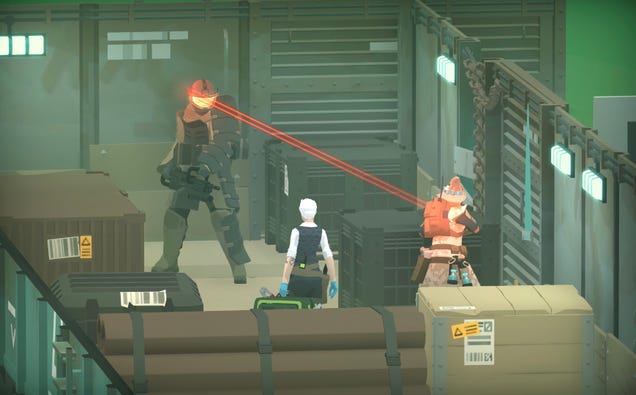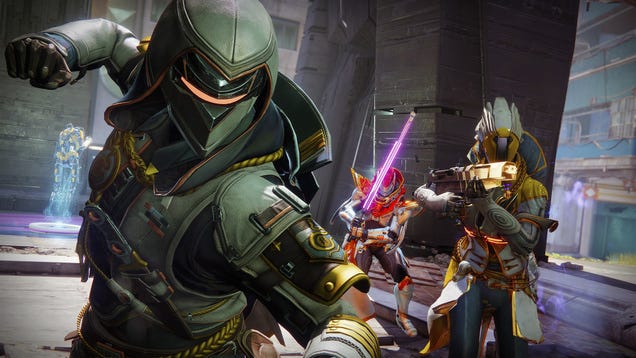Stars Reach – Who is this Game For Anyway?
A new design post went up last week about Stars Reach seemingly tailored to the question being asked in the comments of past posts; Who is this game for? I know Bhagpuss has put that very response in more than one comment so far.
However, if you were expecting a simple answer, something like Smed saying H1Z1 was dedicated to Star Wars Galaxies players, you are going to be disappointed. SWG isn’t even mentioned, so as much as Bree at Massively OP has declared Stars Reach to be a remake of exactly that, that is not a specified goal.
Also, this is another philosophical post with a byline from Raph, so it is his sort of soft and/or more nuanced approach to these sorts of question.
But, I’ve been here for the philosophy so far, why not carry on. My own posts in the area so far:
- Part I – Stars Reach has Some Design Pillars for You to Get Invested In
- Part II – Stars Reach is Back with More Design Pillars about the Game Look and Feel
- Part III – Stars Reach is Back with a Final Set of Pillars, This Time About the Vibe
- Part IV – Stars Reach Promises to let a Thousand Homeowners Associations Blossom
- Part V – Stars Reach – What if a guild could own a planet?
So what are we looking at as far as answers go? Well, there is, in a big headline font, in all caps, the following:
THIS IS A SANDBOX GAME
I tried to reproduce the color, in case that was important, but they’re using a different color palette on their site, so it may not be a 100% match.
I think we knew this, but in case there were any questions, there it is.
Sandbox tends to mean game play that is not based on linear advancement, that there is no “winning” state like hitting the level cap, maxing out all your skills, or defeating the final raid boss and getting that epic gear drop that completes the set. It is the journey and not the destination for Stars Reach, which has declared against anything like end-game raiding.
Which, as always, sounds great, but then I have been playing EVE Online for coming up on 18 years and the biggest problem there isn’t PvP or the cash shop or CCP messing up the economy through self-defeating attempts to make us play they way they want us to play or the difficulty of the UI or the lack of a decent map or the oft repeated, yet never substantiated tales of new players being ganked on their first undock.
No, the absolute, number one, no question about it problem is “So what do I do now?”
This is the problem, the reason you cannot have a pure sandbox game… because it wouldn’t even be a game. It would be Garry’s Mod which, while it can be fun, is hard to classify as a game. And it is an outlier in many way, the key one being its level of success. You are unlikely to be able to duplicate that.
Raph has directly said that there needs to be a game, something to give players some sense of purpose out of the gate. Likewise, EVE Online provides some sense of structure to help new players along, which are missions. Only, then people get stuck in the missions, advance through them, get to the point where they have a nice battleship that can face roll level 4 missions… and they’re done and they leave, never to return, having solo’d themself through a few months of game play and ended up finding the game boring.
I can attest to that track as I did that myself, along with a few of the other obvious paths forward, like mining, manufacturing, and market tycoon. They all end up feeling pretty empty once you achieve the level of success you were aiming for. And CCP has spent some time trying to address this problem, which the spoke about nearly a decade back, though they ended up fixated on the tutorial for way too long… the main problem crops up AFTER the tutorial people… but have made some progress. But it is still probably the #1 issue the game faces today, 21 years into its being.
in EVE Online the way out of that mission experience is to find a purpose beyond the mechanics of the game. I am invested in the soap opera of null sec empires. This has kept me playing for at least a decade and the roller coaster ride of it has pulled me back from a few points of thinking maybe it was time to move on.
But that, and the New Eden economy, rests on PvP and destruction and Raph is put combat on the optional list for Stars Reach. No PvP save for the esoteric economic competition sense of the term.
So Stars Reach wants to give you some things to do. No, wait, let me phrase that correctly.
SOME THINGS TO DO
Some things like, possibly:
- THE ADVENTURER
- Run across the geyser fields towards a crashed Old One ship, before the Cornucopia get there.
- THE TRANSLATOR
- Observe aliens speaking in strange glyphs; match them up, and crack the code of what they are saying.
- THE EXPLORER
- “Beep! Beep!” Audio signals help you find a soft spot in space to open a new wormhole.
- THE FARMER
- Plant red wheat under a violet sky; crossbreed strains to get a valuable healing variant.
- THE MEDIC
- One press of a button conjures a healing bubble around you as you call your party closer.
- THE XENOBIOLOGIST
- Sneak up on house-sized carnivorous bunnies and draw their blood; gotta sample ‘em all.
- THE PILOT
- Collect crystals fallen from shattered asteroids and drag them in bags behind your ship.
- THE MINER
- Tunnel underground – the map is fully destructible. When the gold is gone, it’s GONE.
I am once again put in the mind of No Man’s Sky, which has some of those jobs as part of your experience as the traveler.
The Playable Worlds team has LOTS of ideas… and has gotten a lot of positive response… or so they say. I suspect that much of that positive response, like much of the negative response, has been due to people overlaying their past experience on the vague philosophical underpinnings of the design that has been shared with us so far.
That is certainly the basis on which I have now spewed out half a dozen blog posts on the topic so far. We get presented with something new and immediately assess how it is similar to past experiences and process accordingly. Bree at MOP hears Raph talk about “sandbox” and believes we’re getting a new Ultima Online or Star Wars Galaxies. I hear about sandboxes or infinite worlds or cloud computing and I apply my own personal and professional experience to interpret what is meant.
The thing is, the post from Playable Worlds… doesn’t answer the question posed in the title in any way. The post is more about what they might do and they tap into some of the Nick Yee work from his Quantic Foundry research, literally borrowing a chart from it, to talk about all the things the possibly COULD do, but which they haven’t decided on yet.
The problem with every software project is that there are always many more things you could do than you actually have time, budget, or resources to implement.
So the actual message of the post is that they are on their way forward to test some of their theories. This past weekend the first group of play testers were allowed in to try some of the initial work.
Who the actual game is for has yet to be determined beyond a theoretical estimate. But they are trying to test their theories. I heard that they had 47 people online at once and found some issue including a client memory leak. However, these tests are very, very early in the process, so there is likely a long road ahead before the average schmoe like me gets a peek at what is going on.
I don’t think it will take until 2047. But I would be surprised if there was a “there” there for any general user before, say, 2027. That is just a little more than two years away.
Related:
- Stars Reach – Who is Stars Reach for?
- Massively OP – Stars Reach begins testing this weekend as Raph Koster talks playstyle and the anti-endgame












